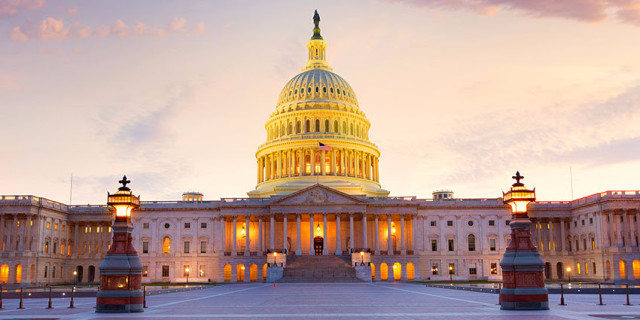Video Game Developers Face the Final Boss: The FDA by Aaron Tao
As I drove to work the other day, I heard a very interesting segment on NPR that featured a startup designing video games to improve cognitive skills and relieve symptoms associated with a myriad of mental health conditions.
One game, Project Evo, has shown good preliminary results in training players to ignore distractions and stay focused on the task at hand:
“We’ve been through eight or nine completed clinical trials, in all cognitive disorders: ADHD, autism, depression,” says Matt Omernick, executive creative director at Akili, the Northern California startup that’s developing the game.
Omernick worked at Lucas Arts for years, making Star Wars games, where players attack their enemies with light sabers. Now, he’s working on Project Evo. It’s a total switch in mission, from dreaming up best-sellers for the commercial market to designing games to treat mental health conditions.
“The qualities of a good video game, things that hook you, what makes the brain — snap — engage and go, could be a perfect vessel for actually delivering medicine,” he says.
In fact, the creators believe their game will be so effective it might one day reduce or replace the drugs kids take for ADHD.
This all sounds very promising.
In recent years, many observers (myself included) have expressed deep concerns that we are living in the “medication generation,” as defined by the rapidly increasing numbers of young people (which seems to have extended to toddlers and infants!) taking psychotropic drugs.
As experts and laypersons continue to debate the long-term effects of these substances, the news of intrepid entrepreneurs creating non-pharmaceutical alternatives to treat mental health problems is definitely a welcome development.
But a formidable final boss stands in the way:
[B]efore they can deliver their game to players, they first have to go through the Food and Drug Administration — the FDA.
The NPR story goes on to detail on how navigating the FDA’s bureaucratic labyrinth is akin to the long-grinding campaign required to clear the final dungeon from any Legend of Zelda game. Pharmaceutical companies are intimately familiar with the FDA’s slow and expensive approval process for new drugs, and for this reason, it should come as no surprise that Silicon Valley companies do their best to avoid government regulation. One venture capitalist goes so far as to say, “If it says ‘FDA approval needed’ in the business plan, I myself scream in fear and run away.”
Dynamic, nimble startups are much more in tune with market conditions than the ever-growing regulatory behemoth that is defined by procedure, conformity, and irresponsibility. As a result, conflict between these two worlds is inevitable:
Most startups can bring a new video game to market in six months. Going through the FDA approval process for medical devices could take three or four years — and cost millions of dollars.
In the tech world, where app updates and software patches are part of every company’s daily routine just to keep up with consumer habits, technology can become outdated in the blink of an eye. Regulatory hold on a product can spell a death sentence for any startup seeking to stay ahead of its fierce market competition.
Akili is the latest victim to get caught in the tendrils of the administrative state, and worst of all, in the FDA, which distinguished political economist Robert Higgs has described as “one of the most powerful of federal regulatory agencies, if not the most powerful.” The agency’s awesome authority extends to over twenty-five percent of all consumer goods in the United States and thus “routinely makes decisions that seal the fates of millions.”
Despite its perceived image as the nation’s benevolent guardian of health and well-being, the FDA’s actual track record is anything but, and its failures have been extensively documented in a vast economic literature.
The “knowledge problem” has foiled the whims of central planners and social engineers in every setting, and the FDA is not immune. By taking a one-sized-fits-all approach in enacting regulatory policy, it fails to take into account the individual preferences, social circumstances, and physiological attributes of the people that compose a diverse society.
For example, people vary widely in their responses to drugs, depending on variables that range from dosage to genetic makeup. In a field as complex as human health, an institution forcing its way on a population is bound to cause problems (for a particularly egregious example, see what happened with the field of nutrition).
The thalidomide tragedy of the 1960s is usually cited as to why we need a centralized, regulatory agency staffed by altruistic public servants to keep the market from being flooded by toxins, snake oils, and other harmful substances. However, this needs to be weighed against the costs of keeping beneficial products withheld.
For example, the FDA’s delay of beta blockers, which were widely available in Europe to reduce heart attacks, was estimated to have cost tens of thousands of lives. Despite this infamous episode and other repeated failures, the agency cannot overcome the institutional incentives it faces as a government bureaucracy. These factors strongly skew its officials towards avoiding risk and getting blamed for visible harm. Here’s how the late Milton Friedman summarized the dilemma with his usual wit and eloquence:
Put yourself in the position of a FDA bureaucrat considering whether to approve a new, proposed drug. There are two kinds of mistakes you can make from the point of view of the public interest. You can make the mistake of approving a drug that turns out to have very harmful side effects. That’s one mistake. That will harm the public. Or you can make the mistake of not approving a drug that would have very beneficial effects. That’s also harmful to the public.
If you’re such a bureaucrat, what’s going to be the effect on you of those two mistakes? If you make a mistake and approve a product that has harmful side effects, you are a devil incarnate. Your misdeed will be spread on the front page of every newspaper. Your name will be mud. You will get the blame. If you fail to approve a drug that might save lives, the people who would object to that are mostly going to be dead. You’re not going to hear from them.
Critics of America’s dysfunctional healthcare system have pointed out the significant role of third-party spending in driving up prices, and how federal and state regulations have created perverse incentives and suppressed the functioning of normal market forces.
In regard to government restrictions on the supply of medical goods, the FDA deserves special blame for driving up the costs of drugs, slowing innovation, and denying treatment to the terminally ill while demonstrating no competency in product safety.
Going back to the NPR story, a Pfizer representative was quoted in saying that “game designers should go through the same FDA tests and trials as drug manufacturers.”
Those familiar with the well-known phenomenon of regulatory capture and the basics of public choice theory should not be surprised by this attitude. Existing industries, with their legions of lobbyists, come to dominate the regulatory apparatus and learn to manipulate the system to their advantage, at the expense of new entrants.
Akili and other startups hoping to challenge the status quo would have to run past the gauntlet set up by the “complex leviathan of interdependent cartels” that makes up the American healthcare system. I can only wish them the best, and hope Schumpeterian creative destruction eventually sweeps the whole field of medicine.
Abolishing the FDA and eliminating its too-often abused power to withhold innovative medical treatments from patients and providers would be one step toward genuine healthcare reform.
A version of this post first appeared at The Beacon.
Aaron Tao is the Marketing Coordinator and Assistant Editor of The Beacon at the Independent Institute. Follow him on Twitter here.













 Three decades after the ‘Moral Majority’ revolution, after fighting numerous battles for our culture, we can claim victory on, well … hardly anything.
Three decades after the ‘Moral Majority’ revolution, after fighting numerous battles for our culture, we can claim victory on, well … hardly anything.




 Anthem says his father taught him “above all else” that true freedom can only be achieved once the world experiences a Hayekian choice in currency that technologies like bitcoin, HayekGold, and other virtual assets are wonderfully making a rapidly growing reality. I know Pop would be the most excited person in the world about all of these new technology developments enabling Austrian economics to flourish in a modern digital society.
Anthem says his father taught him “above all else” that true freedom can only be achieved once the world experiences a Hayekian choice in currency that technologies like bitcoin, HayekGold, and other virtual assets are wonderfully making a rapidly growing reality. I know Pop would be the most excited person in the world about all of these new technology developments enabling Austrian economics to flourish in a modern digital society.







